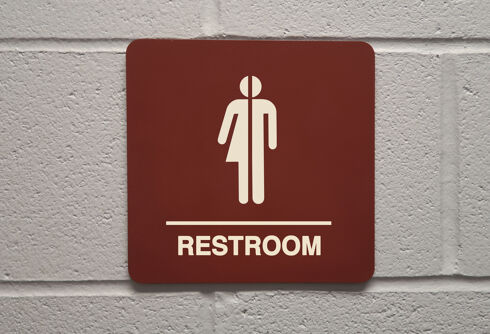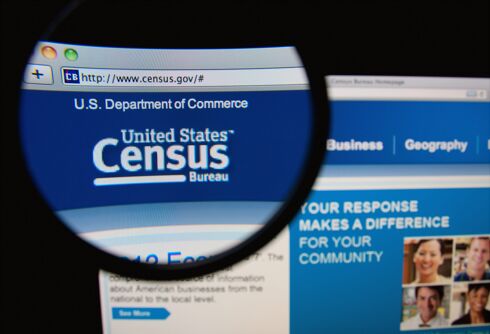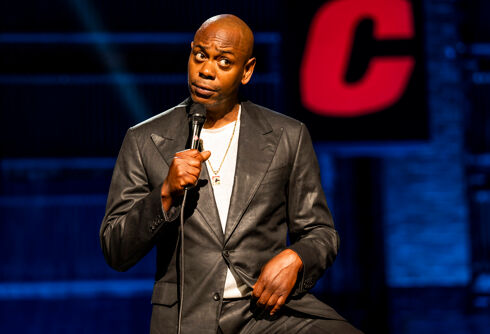
SALT LAKE CITY — A landmark Utah proposal protecting gay and transgender individuals passed its first test at the state Legislature on Thursday when a Republican-controlled Senate committee offered its unanimous and at times emotional support of the measure.
Todd Weiler, a Republican senator from Woods Cross, said he comes from “a conservative, Mormon background” but he’s met many transgender individuals, including one in his neighborhood who grew up with his son.
“I don’t understand those things,” Weiler said, “I understand that those people are different than I am, and that they have rights, and I am 100 percent convinced that they should be protected.”
Weiler, who struggled to stay composed, said the bill would send a message to young people struggling with their identity and “struggling with whether they want to stay alive.”
The bill, which has earned the rare stamp of approval from the Utah-based Mormon church, bars discrimination against gay and transgender individuals while protecting the rights of religious groups and individuals. Drafters of the bill said they hope it serves as a model to other states looking to balance the issues.
It advances to the full Senate for a vote.
Republican Gov. Gary Herbert said Thursday afternoon that if the bill makes it to his desk, he’ll sign it.
During a two-hour hearing Thursday, lawmakers heard from gay and transgender residents who described their fears and experiences, including being evicted after landlords learned of their sexual orientation.
Neca Allgood, of Syracuse, appeared with her 20-year-old child Grayson Moore, who is transgender.
“I want him to be hired and promoted on the basis of his ability, effort and education, rather than his gender identity,” Allgood said.
They also heard from several religious and conservative groups who spoke against the measure.
“This bill would allow a teacher to come in cross-dressed into your children’s schoolroom and there’s nothing the school can do about it. You can’t say anything about it,” Draper resident Abraham Rodriguez said.
Several conservative senators supporting the bill said they felt it provides equally strong protections for LGBT people as it does for the religious.
The proposal prohibits discrimination based on gender identity and sexual orientation when it comes to housing or employment. Religious groups and organizations would be exempt from the requirement, as would their affiliates.
For example, Brigham Young University, a private school owned by The Church of Jesus Christ of Latter-day Saints, would be exempt.
The proposal also includes a specific exemption for the Boy Scouts of America, which has a ban on gay adult Scout leaders and has close ties to the LDS Church.
Leaders of the church joined LGBT advocates and a bipartisan group of Utah lawmakers on Wednesday to unveil of the bill, a rare mix of support that that will likely propel the bill measure through the state Legislature, where most lawmakers are members of the LDS Church.
The church said Wednesday it is fully behind the legislation, which follows the principles set out in the faith’s recent nationwide call for laws that balance both religious rights and LGBT protections.
Lawmakers said the Boy Scouts were not involved in negotiations and did not request the exemption. The organization was included because of a 2000 U.S. Supreme Court decision recognizing the organization’s constitutional right to exclude gay members. The Boy Scouts now allow openly gay youth.
Article continues below
Beyond banning discrimination based on identity and sexual orientation, the proposal stipulates that employers can adopt “reasonable dress and grooming standards” and “reasonable rules and polices” for sex-specific restrooms and other facilities, as long as those standards also include accommodations for gender identity.
For example, companies could offer a unisex, stand-alone restroom for use instead of a larger restroom with a bank of stalls.
Supporters of the proposal say they’ve left some room for companies to interpret what is a reasonable accommodation because they cannot pass a law to deal with all scenarios.
The proposal also protects the right of an individual employee to express their religious or moral beliefs in “a reasonable, non-disruptive or non-harassing way,” as long as it doesn’t interfere with the company’s business.
“If, for example, I worked at Planned Parenthood, it would be totally appropriate for them to say you can’t wear one of those little buttons that has the ‘Right to Life,’ with the fetus on it,” said University of Illinois law professor Robin Fretwell Wilson, who helped Utah lawmakers draft the proposal.
Article continues below
Sen Deidre Henderson, a Republican from Spanish Fork, said she thinks the bill “strikes a wonderful balance.”
“I think that it protects all views from being unfairly treated by extreme elements among those with the other view, on both sides,” Henderson said.
This material may not be published, broadcast, rewritten, or redistributed.













